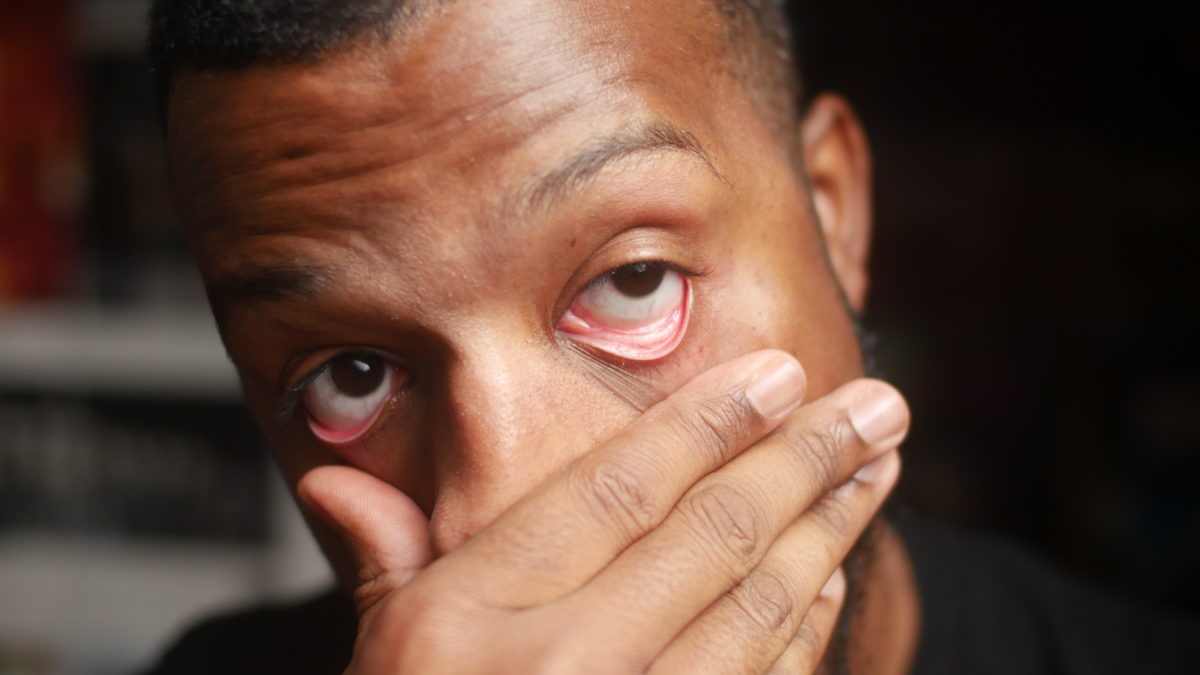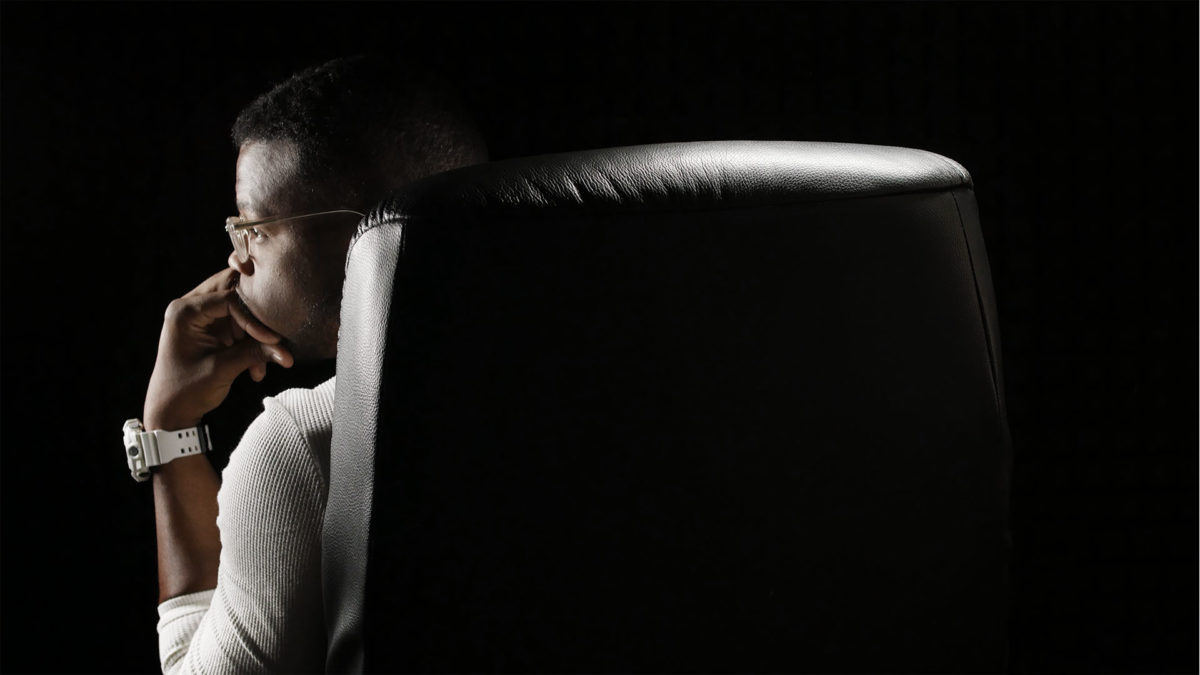Yo, yo Darious Britt here.
I’ve been doing this film thing for 10 years now. Wow. It sounds crazy when I say it out loud—time flies. Hopped onto my first film set back in 2009 literally didn’t know anything. I was just a PA on a student film.
Fast forward 10 years later:
- Went to film school.
- Worked on over 40 short films.
- Produced 8 of my own shorts films.
- Countless micro films.
- Produced two feature films.
- Toured the festival circuit three times.
- Started a YouTube channel.
And here we are.
Thinking back on everything. There are a few things I wish I had known from go. I could have saved my self a lotta time and grief.
Here are 3 things I wish I knew before I started making movies:
1. Mindset Is Everything!
Your mindset is everything. How you view your abilities. How you view your potential influences your behavior and ultimately your success. I had the wrong mindset starting out. Lemme show you the math on that:
I planned on my first feature film being a major critical and financial success. I imagined having that Cinderella story just like everyone else. Get into Sundance, make a big sale. Be the next big voice in Hollywood. I wanted to prove that I had what it takes to be a success. That didn’t quite happen for me.
It doesn’t happen that way for 99% of filmmakers. Alfred Hitchcock didn’t have massive success until much later in his career. He’d already made like ten movies before he hit his stride. It’s not fair to put that kind of pressure on your first movie, especially since you still have so much to learn.
I was approaching this all wrong. I had a fixed mindset. The fixed mindset says that: your intelligence, creativity, skills, and abilities are all predetermined. You’re either born with raw talent or your not. Your qualities are carved in stone. You can’t change it. If you’re successful, it proves that you have talent, if you’re not successful, it proves you don’t. It’s an all or nothing way of looking at it. Will I succeed or fail, win, or lose. It’s very binary.
I was stuck in the fixed mindset for years, trying to make everything perfect, trying to prove how good I am. But then I realized something.
All of the filmmakers I looked up to had a passion for learning the craft of filmmaking. These guys weren’t good because they were naturally gifted. They were good because they put their 10,000 hours in. They were successful because they loved learning, Not because they were trying to be successful. They had a growth mindset.
The growth mindset says, whatever qualities and talents you have they’re just the starting point in your development. You can cultivate new skills and abilities through practice and experience. Anyone can be anything through training and education. It’s about improving and unlocking your true potential over time.
Having a fixed mindset creates a hunger for approval; having a growth mindset creates a hunger for learning.
Ahhhhhh. I get it. If I want to be successful, I can’t chase success; I have to chase self-improvement. Then success will find me. I have to be hungry for learning. Hungry for new skills. Hungry for knowledge. I have to put in the 10,000 hours. That’s the ticket to the chocolate factory.
I switched to a growth mindset. I stopped doing projects to prove myself and started doing more projects to improve myself.
My goal became to learn as much as I can as fast as I can and enjoy the process of learning. I shot more microfilms bc you can rack up more experience a lot faster shooting really small projects.
When I made that switch, I learned more in one year than I had in the past three. And I had a lot more fun.
Had I known this a lot sooner, I could have shot so much more.
2. The Real Goal
If you’re a writer-director, the goal is to come up with a cool premise that attracts a lot of money and attention, Pitch investors or industry contacts if you have then. Get money, make the move, blow up. This is the classical way of thinking when it comes to film. 2 problems with that.
1. This places the emphasis on having a great idea, a super clever twist, a crazy premise, etc. It perpetuates this idea that you are one clever idea away from success. This couldn’t be further from the truth.
Ideas are a dime a dozen everybody has ideas. You can wake up tomorrow with a cool idea. Ideas mean nothing without a solid script. Ideas mean nothing without a writer who can turn it into a great screenplay. Ideas mean nothing without a director who can tell the story in a compelling way.
Ideas mean nothing without execution.
There’s this invisible thing between your good idea and a good movie, and that thing is craftsmanship. I say invisible because if done well, people don’t even know it’s there. All you see is the finished product. You have no clue how much expertise went into it.
Tarantino, Fincher, Hitchcock, Spielberg, Denis Villeneuve. They don’t just have good ideas. They have skills. They have craftsmanship.
If you are starting out, your goal should be to hone your craft. All the cool ideas can wait. You don’t have to have a catchy high concept premise to make a good film.
With craft, you can take a simple story and tell it in an exceptional way. Your execution is what will set you apart from everything that has come before you. Then when you get the occasional cool idea you can knock it out of the park.
Here’s the good news You can build your craft on small, cheap, inexpensive projects. You can build your craft shooting micro films. It’s just about collecting those 10,000 hours. Put in the work. Study other films.
2. The second problem with that line of thinking. It’s kinda hard to convince financiers to give you money with no track record. They wanna see that you know what you’re doing first. Again, making movies is about more than just having cool ideas. There’s a craft behind it.
You’ll probably have to self finance your first few projects. You’re looking at small budgets here. If you know your craft, you can shoot it so well that nobody would know your budget was handshakes and hotdogs.
If you learn how to make ¢10 look like a dollar. You’ll never go out of business.
You don’t build a film career by just having “cool ideas.” You build a career by knowing your craft. The cool ideas and big budgets are just the cherry on the top. If you can really wrap your head around this concept, then you will focus on the right things, and you will have more success.
Don’t chase money. Chase craftsmanship.
If you become an amazing craftsman, you can make amazing films for next to nothing. If you’re a good craftsman, money has a way of finding you.
If you haven’t gotten the message yet here’s the layman’s version:
Finding money and or cool ideas are not your ticket to the chocolate factory, honing your skills are.
Embrace your limitations. If you don’t have money embrace it. At the end of the day, those things aren’t what’s important. It’s your skill, your craft, your execution.
Cool ideas and money those things come and go. You have no control over that, but hard skills don’t. Every skill you earn stays with you.
Everyone has cool ideas. You can wake up tomorrow and have a cool idea. Your mom could wake up tomorrow and have a cool idea. That doesn’t mean anything. Not everyone can wake up with a new skill. Not everyone can wake up with 10,000 hours of experience. Do you want to base your success off of something that can happen to anyone, or do you want to go out and cultivate something for yourself that not many have?
It’s okay to be passionate. It’s okay to want to do big ambitious projects. just make sure you always put learning your craft first.
You have to temper your passion with practically.
3. Embrace Failure
One thing is for certain. You will fail. You will fail a lot. You will make lots of mistakes.
You can’t avoid failure by just watching more tutorials and whatnot. Doesn’t work that way, Bruh-bruh. It’s not gonna happen.
The trick is to make inexpensive failures. Inexpensive in terms of time and money. You wanna burn through all your big mistakes on small cheap projects, like micro films. This way you have a safe little sandbox to play and fall on your face while nobody is watching.
For example, you just got a new camera, shoot some b-roll with it. Shoot a small scene with a couple of friends. Shoot a vlog, fumble through the settings. Do camera tests. Odds are you’re gonna run into a few problems. That’s the point. Now is the time to figure all this stuff out. Not on set.
The more mistakes you make the better. It means you’re doing something. If you’re not failing you’re not trying.
There’s nothing you can do at this level that’s going to hurt you. You can’t ruin your career.
What can you practice by yourself to expedite your learning? Could you be shooting 1000 photos at the park working on your composition? There’s always something you could be doing to improve yourself? Ways to burn through mistakes on your own time.
Fail fast, fail often. fail forward.
Thank you for reading. Keep those cameras rolling and rack up your 10K and learn something new every day.
-DBritt out


